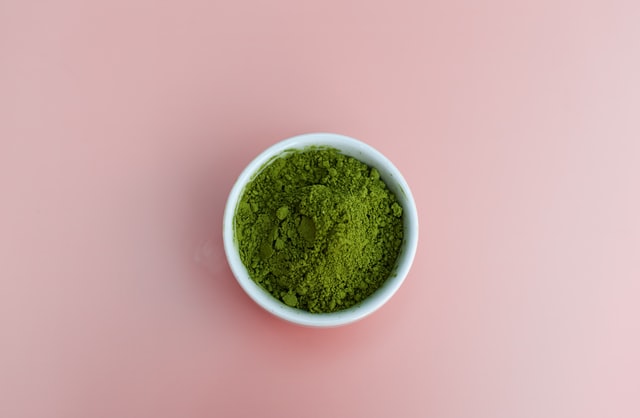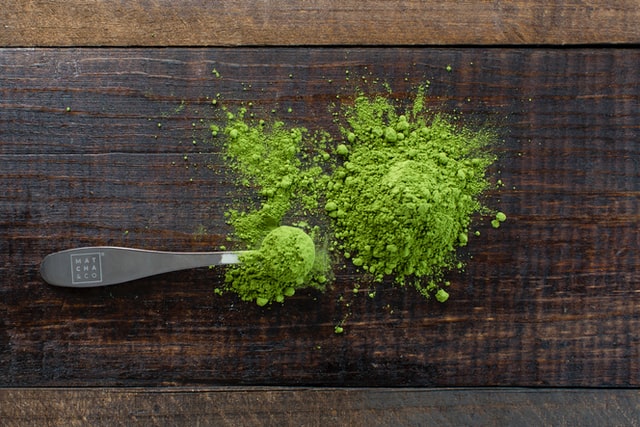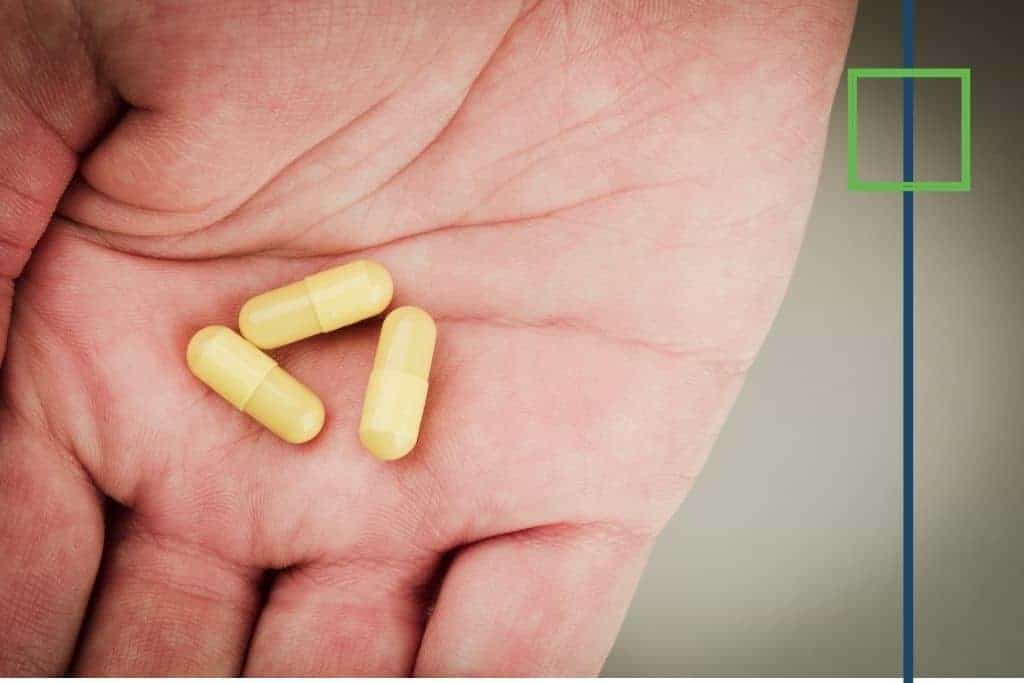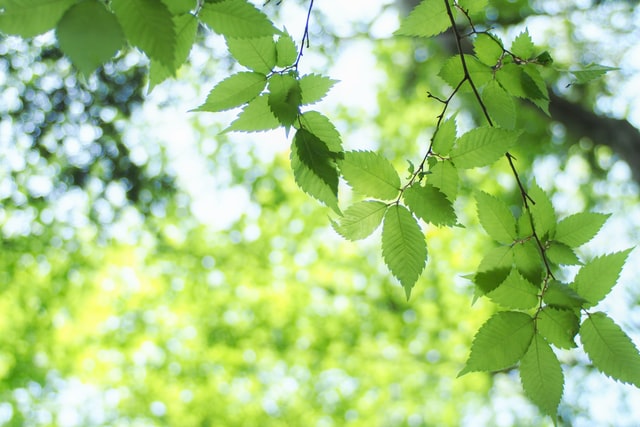What is Kava?
Kava, also called “kava-kava,” is an herbal substance that comes from the root of Piper methysticum – a plant native to the western Pacific Islands. The name kava comes from the Polynesian word “awa” and literally means “intoxicating pepper.” The substance has been used by native islanders for centuries as both a medicinal treatment and a part of religious ceremonies due to its sedative, euphoriant, and psychotropic properties. Typically consumed as either a beverage or extract, kava is considered to be non-alcoholic but psychoactive. As people have become increasingly interested in the concept of natural and herbal remedies to treat various diseases and ailments in today’s society, kava has become more popular and well-known.
Today, Kava is available as a dietary supplement and is being used as an alternative treatment for anxiety. Even though Kava may be beneficial for anxiety and other mental disorders, it comes with a variety of Kava effects and dangers. Although it is not a controlled substance, it is commonly abused for its psychoactive effects. In high doses, kava can produce feelings of relaxation, sedation, and anxiety relief. Ultimately, any substance a person uses that alters their mood, mind, or perception can be addictive. While kava may not be as addictive as stronger opioids like oxycodone, morphine, or heroin, it is possible to get addicted to it.

Kava affects the brain and the central nervous system acting as a depressant that reduces anxiety and relaxes muscles. Today, kava is available in several different forms. You may find kava in a tincture or liquid extract (kava concentrate), added to a pre-made or flavored liquid (micronized kava), brewed into a tea (ground kava root), or formulated into capsules.
Kava has an earthy taste that many people compare to dirt. Kavalactones, the active ingredient in kava, may have an analgesic effect, which is why people who drink kava may experience numbness in their lips or tongue. When people want to experience maximum kava effects, they typically consume it on an empty stomach.

Get Your Life Back
Find Hope & Recovery. Get Safe Comfortable Detox, Addiction Rehab & Dual Diagnosis High-Quality Care.
Hotline(844) 597-1011Kava Uses
The main use of kava is to help with anxiety. In fact, the supplement has become an increasingly popular natural alternative to benzodiazepines such as Xanax and Ativan. Despite the therapeutic effects of prescription “benzos,” the drugs have the potential to cause a lot of negative side effects that people don’t want to experience.
Taking benzodiazepines can leave the users feeling tired, weak, confused, and nauseous. The drugs can also cause debilitating mood and psychological side effects, including depression, irritability, and hostility. Research on the usefulness of kava has shown that it is possibly effective at helping with the symptoms of anxiety and generalized anxiety disorder, and this is believed to be because of the similar way that it affects the brain to anti-anxiety drugs.
Kava affects the brain and other parts of the central nervous system. The kavalactones in kava are believed to be responsible for their effects. Kavalactones, the active ingredients in kava, are sticky, insoluble substances. It passes through the bloodstream as it’s absorbed, causing the plant to act as a muscle relaxant.
Most research shows that taking kava extracts that contain 70% kavalactones can lower anxiety and might work as well as some prescription anti-anxiety medications. Along with anxiety relief, some people take kava because they feel it boosts their mood and helps them fall asleep more easily. Due to these relaxing properties, it is also sometimes used to treat attention deficit hyperactivity disorder (ADHD) and even withdrawal from certain drugs.

Kava Effects
Cases of liver damage and even some deaths have been linked to kava use. Because of this, kava was taken off the market in Europe and Canada in the early 2000s. But after reviewing the evidence, most countries have allowed kava to return to the market. Kava was never taken off the market in the US. Using kava can make it difficult to drive or operate machinery safely.
Do not take kava before you plan on driving. “Driving-under-the-influence” citations have been issued to people driving erratically after drinking large amounts of kava tea. Moreover, the consumption of Kava with organic solvents increases the risks of adverse health outcomes. Kava’s side effects include drug abuse, viral resistance, renal diseases, and blood disorders.
Is Kava Legal?
While it’s legal in the United States, countries like Canada and a lot of the member countries of the EU banned kava. Kava extracts along with any supplements containing kava or kavalactones can’t be sold in many EU member countries. In the U.S. the FDA has issued a warning that people who have liver disease or liver problems, or who take medicines that can affect the liver speak to a doctor before they take kava. Despite health concerns, kava is legal in the U.S. market.
How is Kava Taken?
Kava is available in many different types of products, including teas and other beverages. Kava extracts have most often been used by adults in doses of 150-400 mg by mouth daily. It is also commonly sold as tinctures (liquid extracts). The most common ways kava is consumed include:
Ground Kava Root
This is the traditional preparation of kava. It includes grinding the kava root, putting it in a muslin cloth, and then steeping it in water.
Micronized Kava
Micronized kava is a fine powder and is comparable to an instant version of the root.
Kava Concentrate
Kava concentrate is a concentrated liquid form of the substance that can be added to another drink of choice.
Kava Addiction Potential
Although the FDA does not classify kava as an addictive substance, some studies find its effects on the brain are similar to those of addictive drugs and alcohol. Addictive substances cause a surge of neurotransmitters in the pleasure and reward centers of the brain. The result is an increase in levels of chemicals like dopamine and endorphins that affect mood and other emotions. This surge of natural chemicals elevates the mood while decreasing stress, anxiety, and pain.
Although there is limited research on kava and its active compound, kava pyrones, at least one study found it increased dopamine levels and triggered a relaxing, slightly euphoric effect in study subjects.. Kava appears to affect the brain, it delivers a calming effect, much like Valium. Kava also causes muscle relaxation and affects GABA and dopamine receptors. GABA blocks nervous system activity and helps regulate mood. Because kava interacts with brain receptors to elevate mood and promote relaxation, it may lead to dependence. With addictive substances, dependence often leads to addiction.
Get Help. Get Better. Get Your Life Back.
Searching for Accredited Drug and Alcohol Rehab Centers Near You?
Even if you have failed previously and relapsed, or are in the middle of a difficult crisis, we stand ready to support you. Our trusted behavioral health specialists will not give up on you. When you feel ready or just want someone to speak to about therapy alternatives to change your life call us. Even if we cannot assist you, we will lead you to wherever you can get support. There is no obligation. Call our hotline today.
(844) 597-1011How common is Kava Abuse?
Individuals that regularly take kava say that the herb induces a calming sensation similar to benzodiazepines and alcohol. However, unlike alcohol, they are able to remain “clear-headed” while under the influence of the substance. They experience a kind of euphoria and increased levels of relaxation when taking kava.
Kava essentially acts as a central nervous system (CNS) depressant as it affects the receptors of the neurotransmitter gamma-aminobutyric acid (GABA) and stimulates dopamine in the brain. The mood-boosting and calming kava effects can then cause some people to abuse the herb in order to intensify these feelings.

Kava can produce a variety of negative and potentially harmful effects as well. These side effects can range from mild to severe and include any of the following:
- Headache
- Drowsiness
- Nausea
- Impaired coordination
- Diarrhea
- Skin rash
- Tremors
- Blurred vision
- Numbness
- Fever
- Weight gain
- Depression
Substance abuse constitutes any situation in which the substance is used not as explicitly directed This includes taking higher dosages or mixing it with other drugs and alcohol. Many people will take more of the herb than recommended to feel the kava effects faster or use it to intensify the sedation of other central nervous system depressants, including alcohol. Diverted use such as this increases the risk of serious complications such as troubled breathing, abdominal cramping, and slowed cognitive function.
Signs and Symptoms of Kava Addiction and Abuse
While many believe that kava is non-addictive, it can lead to the development of tolerance and therefore can be habit-forming. The substance can also create a euphoric high that allows users to change their state of mind without being overly impaired, so users can be high and still function. As a result, it’s easy for people to use kava without realizing they have become addicted to it.
Common signs of kava addiction are:
- Feeling intense urges or cravings for kava
- Preoccupation with thoughts of using this herb
- Developing a tolerance where you need to use more of the substance to feel the same kava effects
- Spending excessive time and money on kava
- Wanting to stop or even attempting to stop using kava but being unable to do so
- Continuing to use kava despite worsening health or social consequences
- Mixing kava with other substances like alcohol, opioids, benzodiazepines, or stimulants
- Isolating from friends and family or lying about kava use
First-class Facilities & Amenities
World-class High-Quality Addiction & Mental Health Rehabilitation Treatment
Rehab Centers TourRenowned Addiction Centers. Serene Private Facilities. Inpatient rehab programs vary.
Addiction Helpline(844) 597-1011Proven recovery success experience, backed by a Team w/ History of:
15+
Years of Unified Experience
100s
5-Star Reviews Across Our Centers
10K
Recovery Success Stories Across Our Network
- Low Patient to Therapist Ratio
- Onsite Medical Detox Center
- Comprehensive Dual-Diagnosis Treatment
- Complimentary Family & Alumni Programs
- Coaching, Recovery & Personal Development Events
The Dangers of Kava Abuse
Although Kava is marketed as a natural and safe herbal supplement, experts have many safety concerns about the substance – particularly in regard to the way kava affects the liver. There are multiple safety concerns regarding kava use, including liver failure and cirrhosis of the liver. Many cases of liver damage and even some deaths have been traced back to regular kava consumption. Regularly consuming the supplement for as little as one to three months has resulted in the need for liver transplants and even death. Early symptoms of liver damage include jaundice, fatigue, and dark urine.
While a single dose of kava is probably safe, long-term abuse is extremely dangerous. In addition to the risk of kava addiction, long-term kava use can lead to stomach irritation, liver damage, kidney problems, hallucinations, and even shortness of breath. Another effect of prolonged use is dermopathy; a characteristic scaly, cracked skin disorder found in people who abuse kava.
Kava vs. Benzodiazepines
People considered kava as “nature’s Xanax” because a lot of the effects of these substances overlap. Benzodiazepines are known to be highly addictive. People can become physically dependent on Xanax in just a couple of weeks. To make matters worse, benzo withdrawal is one of the only forms of withdrawal that can actually be lethal (the other one is alcohol). So if this herb and benzodiazepines are so similar, how come kava isn’t nearly as addictive as these anxiety meds? The answer is complicated.
Herbs like kava contain hundreds of different chemicals — each one affecting the body differently. While it’s true that many of the active ingredients work the same way as Xanax, there are many more that work on entirely different neurotransmitters. Some interact with dopamine, others target serotonin receptors, and much more.
Benzodiazepines are GABAergics — which means they enhance the binding ability of a neurotransmitter in the brain called GABA. They do this very effectively and precisely — targeting virtually no other receptors in the body. By affecting just one receptor, it’s easy for the body to build dependence because it only needs to change one receptor type to maintain balance.

Kava and Alcohol
People will frequently compare the effects of kava to feeling a buzz from drinking alcohol, but there are numerous warnings about combining kava and alcohol. Is okay to combine kava and alcohol or can it cause liver problems?
While researchers are unsure of the exact reasons kava might cause liver damage, they do believe that mixing kava with alcohol could put you and your liver at undue risk. Some of the side effects have included cirrhosis of the liver and liver failure, and the use of alcohol can make the risk of these effects higher.
Also along with considering whether or not kava and alcohol are dangerous for your liver is the fact that you can amplify the effects of kava when these substances are combined. Kava can already have a relaxing and somewhat sedative effect. If you add alcohol to the mix, it’s going to further slow your central nervous system, which can slow your reflexes and cause you to become very drowsy.
World-class, Accredited, 5-Star Reviewed, Effective Addiction & Mental Health Programs. Complete Behavioral Health Inpatient Rehab, Detox plus Co-occuring Disorders Therapy.
CALL(844) 597-1011End the Addiction Pain. End the Emotional Rollercoaster. Get Your Life Back. Start Drug, Alcohol & Dual Diagnosis Mental Health Treatment Now. Get Free No-obligation Guidance by Substance Abuse Specialists Who Understand Addiction & Mental Health Recovery & Know How to Help.
Kava Addiction Treatment
While kava is marketed as a safe and natural supplement in the U.S., it still has the potential for abuse and addiction. Due to the dangerous health consequences, it can cause, anyone that feels attached to or craves the substance should seek help.
For someone already addicted to this herbal plant, the best solution is by enrolling in a rehabilitation facility. By doing so, patients are guided on how to quit their addictive way of life and are also taught ways to blend back into society and live a happy and healthy life free from Kava.
Medically-Assisted Detox
Detox is often considered the first stage of treatment. It will help you navigate the complicated process of withdrawal, but it doesn’t address patterns of thought and behavior that contribute to drug use. Various treatment approaches and settings can help provide the ongoing support necessary to maintain long-term sobriety after you complete detox.
Cravings are very common during detox and can be challenging to overcome. This often leads to relapse. Constant medical care provided during inpatient treatment helps prevent relapse. Clinicians can provide necessary medication and medical expertise to lessen cravings and the effects of withdrawals.
Psychotherapy
Several different modalities of psychotherapy have been used in the treatment of mental health disorders along with addiction, including:
- Cognitive Behavioral Therapy (CBT) – is an effective treatment that involves making changes in both the patterns of negative thoughts and the behavioral routines which are affecting the daily life of the depressed person for various forms of depression.
- Dialectical Behavioral Therapy – is a comprehensive mental health and substance abuse treatment program whose ultimate goal is to aid patients in their efforts to build a life worth living. The main goal of DBT is to help a person develop what is referred to as a “clear mind.”
- Person-Centered Therapy – is a strategy that allows and encourages clients to understand and resolve their concerns in a safe, supportive environment.
- Solution Focused Therapy – is an approach interested in solutions that can be quickly implemented with a simple first step leading to further positive consequences.
Dual Diagnosis Treatment
Drug abuse and mental health disorders often co-occur. In many cases, traumatic experiences can result in a mental health disorder and substance abuse. Dual diagnosis rehabilitation treats both of these issues together. The best approach for the treatment of dual diagnosis is an integrated system. In this strategy, both the substance abuse problem and the mental disorder are treated simultaneously. Regardless of which diagnosis (mental health or substance abuse problem) came first, long-term recovery will depend largely on the treatment for both disorders done by the same team or provider.
Medication-Assisted Treatments
Medication-Assisted Treatments (MAT) for substance use disorders and mental health disorders are commonly used in conjunction with one another. This includes the use of medications and other medical procedures. During your rehab, the staff from your treatment facility will help you identify what caused your addiction and teach you skills that will help you change your behavior patterns and challenge the negative thoughts that led to your addiction. Sometimes, the pressures and problems in your life lead you to rely on substances to help you forget about them momentarily.
If you or your loved one is suffering from mental health problems such as anxiety, depression, and ADHD along with co-occurring disorders such as Kava addiction and alcohol use disorder. Professional dual diagnosis treatment is necessary for fast and effective recovery. Contact us today at We Level Up treatment facility. We provide utmost care with doctors and medical staff available 24/7 for life-changing and lasting recovery. We offer an enhanced opportunity to return to a fulfilling and productive life.

Experience Transformative Recovery at We Level Up Treatment Centers.
See our authentic success stories. Get inspired. Get the help you deserve.
Start a New Life
Begin with a free call to an addiction & behavioral health treatment advisor. Learn more about our dual-diagnosis programs. The We Level Up Treatment Center Network delivers recovery programs that vary by each treatment facility. Call to learn more.
- Personalized Care
- Caring Accountable Staff
- World-class Amenities
- Licensed & Accredited
- Renowned w/ 100s 5-Star Reviews
We’ll Call You
Sources:
[1] NIH – https://www.nccih.nih.gov/health/kava


